With two weeks to go before New Zealand’s general election, the contest is so close that many have stopped bothering to make predictions over who will win. And yet, despite such competition, one would be hard-pressed to call the parties’ campaigning lively.
The election is being contested by a pair of unprepossessing men named Chris: wonkish, technocratic, affably bland on the stump, they have been crisscrossing the country in a spirit of hokey conviviality. One making cheese rolls, the other dressing up as a pirate; one wedged himself into a tot’s chair to stir goo at a children’s centre, the other drove a tractor ten yards. Neither candidate has been able to capture the collective imagination during televised debates watched by the ever-decreasing segment of society who still watch terrestrial television.
A more generalised, somewhat simplistic, wariness of ‘wokeness’ is also on the rise
In January, Prime Minister Chris Hipkins took over from Jacinda Ardern, who just three years ago won the greatest electoral victory in the modern age, leaving her able to govern without coalition partners. As late as July, the two main parties, Labour and National, were polling evenly. Now, a nine-point gap has opened up, with Hipkins’ Labour party polling at 27 per cent and National at 36 per cent.
National’s natural coalition partner, the libertarian ACT party, registered 12 per cent of the vote. Together, on present polling, a National and ACT coalition would receive 64 seats, just surpassing the necessary 61.
Labour’s ally, the Green party, is polling at 10.5 per cent. Te Pāti Māori (the Māori party), if it can win a share of the vote, would bring in another two MPs with 2.6 per cent of the vote.
The picture is muddled in terms of the projected overall composition of parliament. On current polling, the right bloc’s 64 seats to the left’s 56 is almost in the margin of error. Similarly, though Labour trails National significantly, it was only as far back as 2017, when Jacinda Ardern first came to power, that Labour managed just 37 per cent to National’s 44 per cent. Nevertheless, Labour was still able to form a coalition despite coming a distant second in the popular vote.
The electorate seems somewhat diffident about giving either side any particular mandate. The reality is, with the exception of first and sometimes second terms here and there – and the Covid-influenced rout of 2020 in particular, New Zealand politics has largely ossified for a quarter of a century.
Throughout this time, centrist governments have frequently entered into coalition with the centrist-nationalist New Zealand First party led by the canny figure of Winston Peters. He first held the balance of power in 1996, then again in 2005 when he became minister of Foreign Affairs, and then again in 2017 when he allowed Jacinda Ardern to set up her government. He now seems to have risen once more, despite being 78 years old, and with all prognostications of his demise appears to be in a reasonable position to re-enter parliament. A 5 per cent threshold needs to be met to gain seats. Currently, his party is polling just above that number.
The latest Newshub Reid Research Poll published this week suggested that New Zealand’s left bloc would only get 54 seats. Support for National and ACT also tumbled, meaning the right bloc would only reach 60 seats. If the findings of this poll were to bear out, Christopher Luxon would need to call Peters and solicit him to form a government – a scenario Hipkins has emphatically ruled out.
The economy, and the cost of living in particular, is the main driver of Labour’s decline, but there are several socio-cultural dynamics at play here, too. At the level of outcomes, New Zealanders are generally sympathetic to the enduring discrepancies besetting the Māori population. But at a legislative level, successive governments have failed to adequately manage the push and pull between indigenous representation and outcomes, and the egalitarian principles of no one being privileged or singled out. Tensions around precedent have regularly given rise to resentment and backlash.
The ‘Closing the Gaps’ policy of the Labour government elected in 1999 was devised to address socio-economically disadvantaged Māori and Pasifika through targeted social programmes. The opposition National party led a campaign against the measures. In 2000, Winston Peters described the program as ‘social apartheid’. In some districts, the policy came across as undermining equal opportunities in social policy intrinsic to New Zealand identity.
The Labour-led government took stock of public sentiment, and six months in, the term ‘closing the gaps’ was no longer used in official documents. It was re-branded as ‘reducing inequalities’. The 2004 New Zealand foreshore and seabed controversy also gave rise to the perception that the door would be open for Māori to claim ownership of the entire coastline of New Zealand through the Māori Land Court.
More recently there has been the controversial ‘Three Waters’ proposal, stemming from a cross-agency review of the country’s stormwater, drinking water and wastewater. The reform package, now passed into law, involves establishing ‘non-financial shareholdings in the new entities, and ‘regional oversight groups’ with equal membership drawn from local Māori groups and councils in a set-up known as ‘co-governance’.
Logistical objections to Three Waters have largely faded. The issue that’s turned out to have traction is a perception in some parts of society that Māori are obtaining some kind of unfair advantage, or something that might set a precedent and open the door for an undermining of fundamental egalitarian principles.
The government might have avoided these tensions if it had never uttered the phrase ‘co-governance’, and instead talked about ‘partnership’ or ‘shared responsibility’. As it is, the phrase has had the effect of implying to many that Māori would be granted privileged and disproportionate scope and authority.
The ACT party is promising to end co-governance, which it claims comes at the expense of universal human rights. Party leader David Seymour said ACT would not legislate based on ‘revisionist interpretations’ of the Treaty of Waitangi: ‘Attributing separate rights through co-government will never achieve [equality], it only causes more division.’
National Party leader Christopher Luxon has said, ‘We just don’t support the co-governance of public services’ though he was more measured toward co-governance in the context of treaty settlements and the management of local natural resources between iwi, district councils and other stakeholders.
In this atmosphere of distinctly New Zealand identity politics, a more generalised, somewhat simplistic, wariness of ‘wokeness’ is also on the rise. Winston Peters, with his party’s campaign slogan: ‘Let’s take our country back’, his aesthetic of pinstripe suits, and schtick of running circles around New Zealand’s uniquely gormless breed of political journos, has returned to relevance.
At the same time, many working class, socially conservative voters normally aligned with Labour (more or less analogous to Boris Johnson’s ‘Red wall’ voters) seem to be making the calculation that, with Labour seemingly unlikely to win, they won’t die if a centre-left Chris gives way to a centre-right Chris. But these voters are wary of what they consider to be the ideologically dubious and slightly toss-pot-ish ACT feasibly messing around with the fundamentals of society and governance, and will vote for Winston Peters as a centrist, populist bulwark.
The upshot of this is that earlier this week, Christopher Luxon expressed his willingness in public to ‘get on the phone to Winston’ if it were necessary to form a coalition. Though it remains quite possible that National and ACT will form a solidly right-wing coalition, it is just as plausible that a National-led coalition will grind its way through a term with Winston Peters regularly pulling on the legislative handbrake, just as he recurrently did during Jacinda Ardern’s first term.
Got something to add? Join the discussion and comment below.
Get 10 issues for just $10
Subscribe to The Spectator Australia today for the next 10 magazine issues, plus full online access, for just $10.

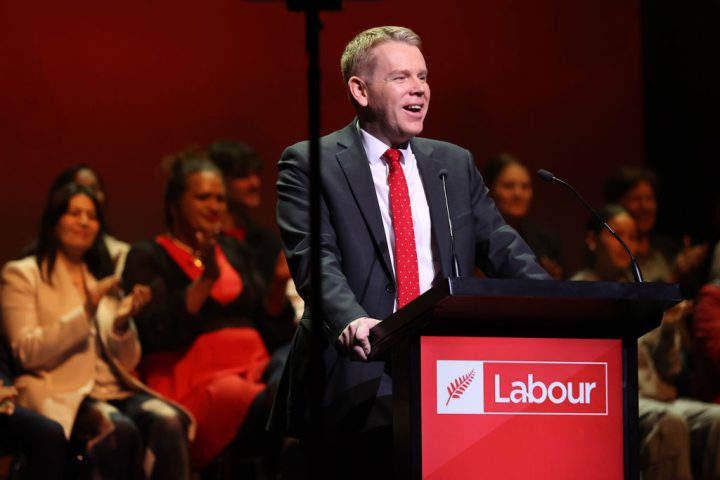
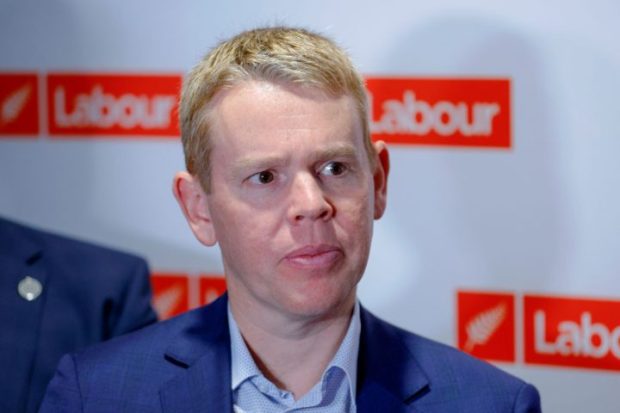
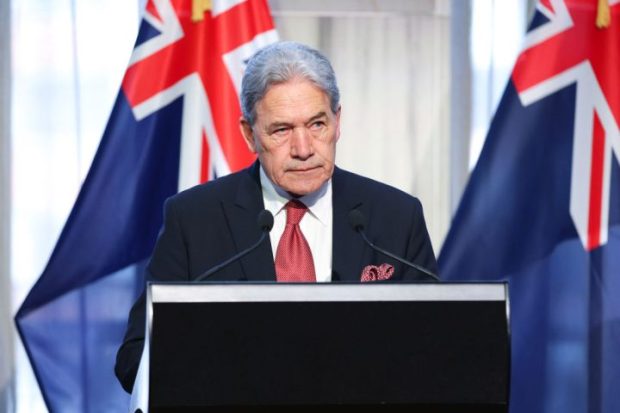
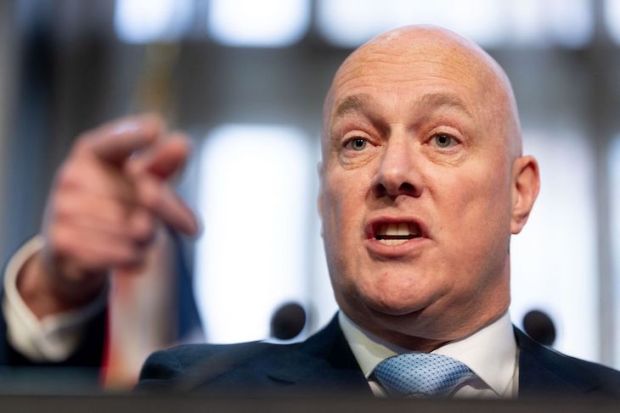
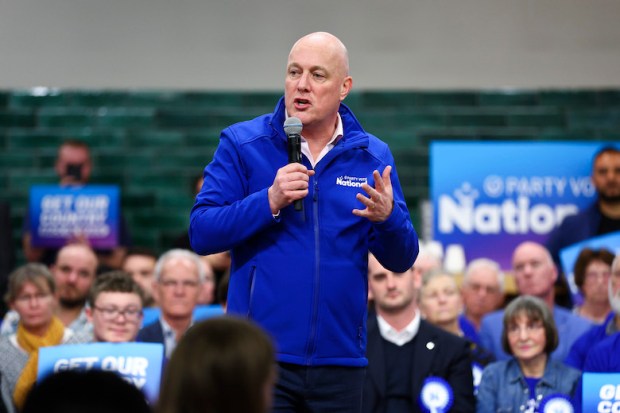
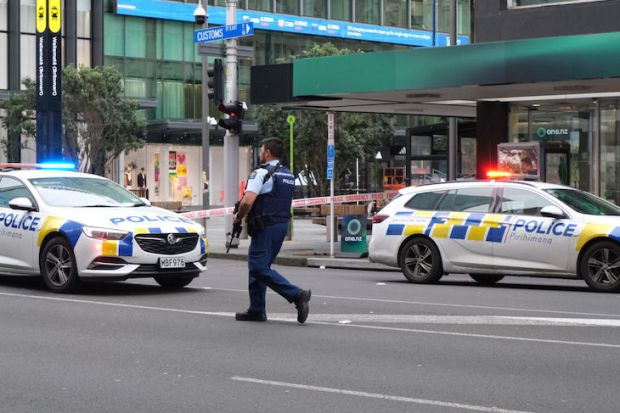
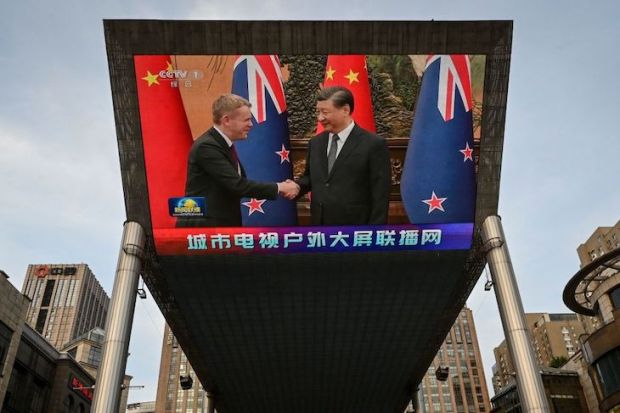












Comments
Don't miss out
Join the conversation with other Spectator Australia readers. Subscribe to leave a comment.
SUBSCRIBEAlready a subscriber? Log in